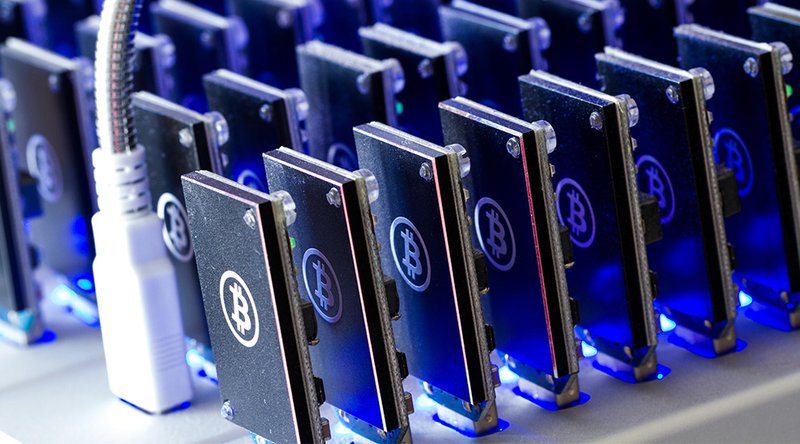Samsung is the largest smartphones manufacturer in the world and the company has recently released its financial results for the year 2017, where the company earned a profit of around $50 billion as a whole. The report also revealed that Samsung’s semiconductor business is rocking, with the company recently beating Intel as the world’s biggest chipmaker. As of now, it looks like the South Korean firm is expanding its chipsets business by entering cryptocurrency mining market.
Samsung has confirmed that the company is in the process of making hardware specially designed for mining cryptocurrencies like Bitcoin and Ethereum, as reported by TechCrunch. These chips are called Application-Specific Integrated Circuits (ASICs). ASICs are specially designed processors for a single computational task, unlike the multi-purpose processors used in computers and smartphones these days.
According to the company’s spokesperson,
“Samsung’s foundry business is currently engaged in the manufacturing of cryptocurrency mining chips. However, we are unable to disclose further details regarding our customers.”
As soon as Bitcoin and other cryptocurrencies have cited a surge in price last year, the demand for these sorts of chips has also increased. Cryptocurrencies are mined in a complex manner. For instance, Bitcoin is created by solving mathematical problems, with these calculations the integrity of Bitcoin transactions is also maintained. The miners have moved on from integrated graphics cards to GPUs (specifically used for heavy game processing). And now these specially designed ASICs are taking crypto mining to a whole new level.
Furthermore, no info has been revealed on what sort of products Samsung will be making, but according to reports from Korean media, it’ll be working with Taiwanese firm TSMC to manufacture these chips. TSMC currently supplies chips for a number of firms set up purely to mine cryptocurrencies, including Bitmain a popular Chinese firm.
Developing chips for mining cryptocurrencies seems exciting, but that doesn’t mean it’ll be extremely profitable for giants like Samsung, which has already made $69 billion in revenue in 2017 for silicon chip business.












